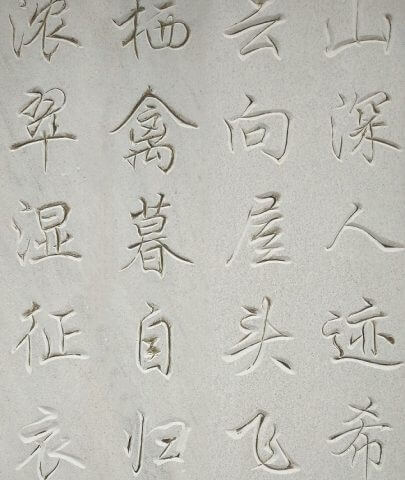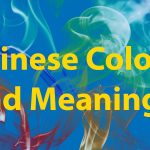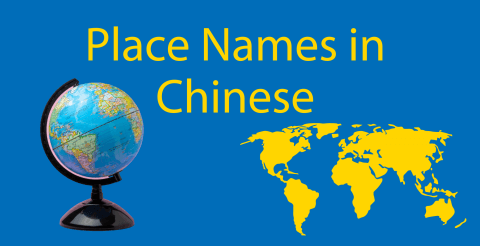Did You Know There Are Chinese Loanwords Used Frequently in Everyday English and Other Languages?
Did you know there are tonnes of Chinese loanwords, taken from other languages, used in everyday Chinese?
Today we are going to teach you some of the more popular and surprising examples of loanwords used in Mandarin.
Chinese Loanwords | Foreign Loanwords in Chinese
Chinese Loanwords | Myth
Chinese Loanwords | Talk show
Chinese Loanwords | Bullying
Chinese Loanwords | Hacker
Chinese Loanwords | Calories
Chinese Loanwords | Blog
Chinese Loanwords | Logic
Chinese Loanwords | Clone
Chinese Loanwords | Aspirin
Chinese Loanwords | Karat
Chinese Loanwords | Vitamin
Chinese Loanwords | Translation of Foreign Company Names
Chinese Loanwords | Chinese Loanwords in English
Chinese Loanwords | Brainwashing
Chinese Loanwords | Paper tiger
Chinese Loanwords | Guanxi
Chinese Loanwords | Lose face
Chinese Loanwords | Add oil
Chinese Loanwords | FAQ’s
Foreign Loanwords in Chinese – 外来语 wàilái yǔ
The Chinese language has historically been highly resistant to outside influence and therefore has fewer loanwords compared to some other languages.

The unyielding nature of Chinese characters is the main reason for this.
When you have an alphabet to work with, a foreign loanword can simply be transliterated to sound as close as possible to the original language.
A Chinese character, on the other hand, can’t be changed in meaning, pronunciation, or form to make it look or sound more ‘foreign’.
It is already set in stone, and to use it, you have to take it as it is.
Foreign transliterated words often sound very cumbersome in Chinese, which you may have noticed if you ever tried transliterating your foreign name into Chinese.
For this reason, foreign concepts have usually, but not always, been translated into the closest Chinese equivalent.
The Chinese word for ‘mosque’ is 清真寺 qīngzhēn sì, which literally means ‘temple of purity and truth’. The English word is transliterated from the Arabic (via French).
Whereas the majority of the foreign words in Chinese are related to food or places, (take ‘pudding’ 布丁 bùdīng or ‘pizza’ 披萨 pīsà) in which the characters only imitate the foreign word in sound but make no sense, there are multiple examples where this rigidity in Chinese has led to much more creative translations.
Because the character already has a set meaning (or many), it is possible for the Chinese version to almost be a pun of itself – it both sounds like and conveys the meaning of the original word.
So let’s take a look at some examples!

Chinese Words | The BEST Way to Cram New Words in Chinese
There is a genius way to learn Chinese words that you may not realise. Our Instagram followers love it and we want to share it with you on our blog too.
#1 Foreign Loanwords in Chinese – Myth 迷思 mísī
迷 mí, among other meanings, can mean ‘to confuse’ or ‘lost’, and 思 sī is ‘thought’, therefore mísī can be literally translated as ‘confused thought’,
The ‘th’ sound in English words such as ‘myth’ usually turns into an ‘s’ sound in Chinese as it is the closest equivalent.
#2 Foreign Loanwords in Chinese – Talk Show 脱口秀 tuōkou xiù

The tuōkǒu in tuōkǒu xiù means ‘to blurt out.
The 秀 xiù is a phonetic translation of the English ‘show’, and is also as a word on its own.
‘Blurt out show’ is therefore an apt name for a place where celebrity secrets are accidentally spilt.
#3 Foreign Loanwords in Chinese – Bullying 霸凌 bàlíng
The character 霸 bà means ‘tyrant’ or ‘to tyrannize’, and 凌 líng means ‘to insult’ or ‘to bully’.
The characters therefore adequately describe the meaning of ‘bullying’ whilst also imitating the sound of English.
#4 Foreign Loanwords in Chinese – Hacker 黑客 hēikè

The literal translation of hēikè is ‘black visitor’ or ‘black guest’.
Nowadays, the colour black in Chinese represents illegality, so it could be translated as ‘illegal guest’, a fitting term for someone who illegally accesses private information online.
The character 黑 hēi can also be used on its own as a verb, ‘to hack’.
That said the main usage for the word 黑 hēi is for the colour black.

22 Chinese Colors And Meanings | PLUS Free Quiz
Want to learn about Chinese Colors and their meanings? Learn the meanings of the colors, lucky chinese colors and their meanings.
#5 Foreign Loanwords in Chinese – Calories 卡路里 kǎlùlǐ
Everyone can talk about getting fatter (变胖) or about losing weight (减肥) but how many people mention the word “calories“ while doing this?
提拉米苏的卡路里太多,可是我好喜欢吃哦!
Tiramisù contains too many calories, but I love it!
如果你想消耗一些卡路里,那就开始跑步吧!
If you want to burn some calories, just start running.
#6 Foreign Loanwords in Chinese – Blog 博客 bókè
When you’re learning Chinese you get used to beating around the bush every time you don’t know the specific word to express what you’re thinking.
When students talk about the internet they usually turn everything into “网站” website, but what if they could learn a super easy (more specific) word?
这个博客很棒!
This blog is amazing! (well it is right!)
这些时尚博客很受欢迎!
These fashion blogs are very popular!
#7 Foreign Loanwords in Chinese – Logic 逻辑 luójí
When you challenge someone’s view, make sure to express yourself at your best: be logical!
为什么你说话总是没有逻辑!? Why is there always a lack of logic in your remarks?!
这句话不合逻辑。This statement is totally illogical.
#8 Foreign Loanwords in Chinese – Clone 克隆 kèlóng
Clonation is obviously not among the top 10 most common conversation topics, but what if Chinese people use the term “Clone” with reference to the process of stealing data by recording card information etc…?
You might need it, right?!
#9 Foreign Loanwords in Chinese – Aspirin 阿司匹林 āsīpīlín
Aspirin! Cause sometimes “drink more water” is not enough…
你应该吃一片阿司匹林,然后睡一觉。
Take some aspirin and get some sleep.
感冒发烧,阿司匹林一包!
Got a cold or fever? Take some aspirin!
#10 Foreign Loanwords in Chinese – Karat 克拉 kèlā
Wedding in Chinese culture is a MUST!
So, of course, you will meet a lot of people who are getting married soon.
Wouldn’t it be nice to comment on your friend’s engagement ring with the right words?!
他卖给你3克拉钻戒,你怎么能不愿意嫁他呢?
He got you a 3-carat diamond ring, how can you refuse his proposal?!
#11 Foreign Loanwords in Chinese – Vitamin 维他命 wéitāmìng*
You know Chinese people are obsessed with giving health advice and tips… get your revenge by suggesting that they take more vitamins!
柳橙和桔子有高度的维他命C。
Oranges and tangerines are high in vitamin C
*维生素 (wéishēngsù) is also commonly used.

Low-tech Learning 📚 7 Ways to Help you Learn a Foreign Language
Low-tech learning | Technology has put knowledge in our pockets, but there are some old-school techniques that can help you learn a language.
OK, time to move on to the practice of foreign companies selecting brand names in Chinese. This is a process that can go either very, very well, or very wrong!
Let’s dive in…
Translation of Foreign Company Names
This method of combining meaning with sound is used particularly often in Chinese marketing, especially by foreign companies entering the Chinese market.
These companies often seek a translation of their name that captures the essence of the company whilst not straying too far from the original name.
DID YOU KNOW || One of the most successful and widely recognized foreign brands in China is Coca-Cola, whose Chinese name 可口可乐 kěkǒu kělè means ‘tasty and fun’, reflecting their ‘Open Happiness’ marketing campaign.
The diaper brand Pampers led a hugely successful marketing campaign with the Chinese name 帮宝适 bāngbǎoshì.
This literally means ‘help babies be comfortable’, a play on their ‘Golden Sleep’ tagline.

You may think that bāngbǎoshì doesn’t really sound like Pampers, but the similar alliteration in the words ‘pamper’ and ‘bangbao’ is surely not a coincidence.
Other companies have not been as successful with their Chinese branding.
Back in 2017, Airbnb’s new Chinese branding set off a storm of debate online.
The name they chose, 爱彼迎 Àibǐyíng, was meant to elegantly imitate the English name in sound whilst reflecting the company’s home share business.
爱 ài means love and 彼迎 bǐyíng means ‘to welcome one another’, so the phrase is meant to be ‘welcome each other with love’.

Some people, however, complained that the name sounded awkward in Chinese and wondered whether the meaning is a little too subject to interpretation.
Volkswagen took a slightly different approach and instead considered the design of their logo, taking advantage of the pictographic nature of Chinese characters.
The Chinese for Volkswagen, which in original German means ‘people’s car’, was translated literally as 大众 dàzhòng, meaning ‘the public’ or ‘the masses’.
But the ingenuity lies in the character’s appearance.
Turn the 众 in 大众 upside down and you get a symbol that looks uncannily like the Volkswagen logo.

Building Your Expat Life in China and Coping With People Moving Home || Part 1
Find out first how to make your expat life in China easier from the start, and how to deal with your friends moving home with LTL Language School.
Chinese Loanwords in English
But what about the influence of Chinese on English?
Due to historical ties between the West and southern China established through trade and colonisation, most Chinese words in English come from Cantonese or Hokkien (a Chinese dialect spoken mainly in Fujian province and Taiwan).
DID YOU KNOW – Probably the most famous of Chinese loanwords in English is ketchup, which is said to come for the Cantonese 茄汁 ke zap meaning ‘tomato juice’.
However, over the past four decades since China started opening up and exporting goods and culture to the outside world, a growing number of Mandarin words have reached the tongues of English speakers.
So let’s look at some of the more recent uses of Mandarin words in English.
#1 Chinese Loanwords in English – Brainwashing 洗脑 xǐnǎo
The term ‘brainwashing’ is a direct translation from the Chinese 洗脑 xǐnǎo – xi means to ‘wash’ and nǎo means ‘brain’.
It is believed to have entered the English language during the Korean War in the 1950s when the Chinese communists attempted to indoctrinate foreign POWs.
#2 Chinese Loanwords in English – Paper tiger 纸老虎 zhǐ lǎohǔ

The term ‘paper tiger’ first appeared in English in the 19th Century but has more famously been used by the Mao regime to criticize their perceived enemies, in particular American imperialists.
The phrase describes something which appears threatening but has no power to intimidate at all.
The English is a direct translation of the Chinese 纸老虎 zhǐ lǎohǔ, possibly because the poor translators who were conveying this concept to Western reporters couldn’t find an adequate term in English.

Aunt Tiger || Taiwan Legend and Nursery Rhyme
The story of Aunt Tiger is one of the shared memories of many Taiwanese. They also recognise it as one of the most terrible nightmares of their childhood.
#3 Chinese Loanwords in English – Guanxi 关系 guānxì
Guānxì, or ‘connections’, is an important concept to understanding how business operates in China.
Of course, the concept of ‘getting in through the back door’ is not unique to China, but having a healthy network of connections has traditionally been crucial for getting ahead, whether it be in education, business, or politics.
The transliterated word is now used in English language publications, although mainly in the context of China.
#4 Chinese Loanwords in English – Lose face 丢脸 diūliǎn

The concept of ‘face’ 面子 miànzi, has significant social and cultural implications in China.
It denotes an individual’s social standing and level of influence and respect within the family, among friends, and professional networks.
A loss of face, through a personal failure, embarrassing yourself in public or even being debased or insulted in some way, can cause this social standing to be knocked down a peg.
This phrase seemed to have resonated with the British, who translated it directly from the Chinese, ‘丢 diū means ‘to lose’ and 脸 liǎn means face – and first used it back in the 19th Century.
DID YOU KNOW || The phrase ‘to save face’ was invented after the Chinese term entered English and is assumed to be a play on the original phrase. However, there is no equivalent term in Chinese.
#5 Chinese loanwords in English – Add oil 加油 jiāyóu
One of the more recent additions to English from Chinese, 加油 jiāyóu, literally to ‘add oil’, is used as a word of encouragement, to push someone to keep going and not give up.
DID YOU KNOW || ‘Add oil’ was recently added to the Oxford Dictionary, awarding it an official status as an English phrase.

Although said to originate in Macau and Hong Kong (possibly at the Macau Grand Prix), this phrase is used extensively in mainland China and was even the official cheer of the 2008 Chinese Olympic Team.
The Chinese language has also been influenced by languages other than English.
There are numerous examples of languages such as Sanskrit, Japanese, Arabic and Persian, among others, leaving their mark on Chinese. In the interest of brevity, we decided to focus on English only in this post.
China is becoming an ever more influential global force and at the same time, becoming more and more receptive to outside trends and influences.
It is therefore highly likely that we will see more words enter the English language from Chinese and vice versa, as these two worlds become increasingly intertwined.
BONUS | How about we switch it around and teach you some words used in daily life in English, taken directly from Mandarin.
Check out our guide to some of the most popular English words borrowed from Chinese here.
There’s sure to be some surprises on the list you didn’t expect also!
DOUBLE BONUS || If you love learning loanwords from other languages, why not check out our guide to Konglish and 20+ Russian loanwords too!
Chinese Loanwords || FAQs
What is a loanword?
A loanword is a word adopted from a foreign language with little or no modification.
How do you say Hacker in Chinese?
Hacker is a loanword and is spelt, 黑客 hēikè
How do you say Talk Show in Chinese?
This is an example of a Chinese loanword:
Talk Show = 脱口秀 tuōkou xiù
How do you say Aspirin in Chinese?
Aspirin is another example of a loan word in Chinese – 阿司匹林 āsīpīlín
What does “Add Oil” mean in Chinese?
One of the more recent additions to English from Chinese, 加油 jiāyóu, literally to ‘add oil’, is used as a word of encouragement, to push someone to keep going and not give up.
Why do China love Coca Cola’s Chinese name?
One of the most successful and widely recognized foreign brands in China is Coca Cola, whose Chinese name 可口可乐 kěkǒu kělè means ‘tasty and fun’, reflecting their ‘Open Happiness’ marketing campaign.
The name has positive connotations in Chinese and is therefore widely popular with Chinese people.
Want more from LTL?
If you wish to hear more from LTL Language School why not join our mailing list.
We give plenty of handy information on learning Chinese, useful apps to learn the language and everything going on at our LTL schools!
Sign up below and become part of our ever growing community!
BONUS | Want to study the local Taiwanese dialect known as Hokkien? We provide Hokkien classes in person and online.

 Hi, my name is Greta. I am from Italy and I work as a student advisor at our Taipei school.
Hi, my name is Greta. I am from Italy and I work as a student advisor at our Taipei school. Hi, my name is Manuel! I am from Spain and I am a Student Advisor at LTL. I’m now based at our Seoul School after living 3 years in Taipei.
Hi, my name is Manuel! I am from Spain and I am a Student Advisor at LTL. I’m now based at our Seoul School after living 3 years in Taipei.





11 comments
I had never realised that the 众 in 大众 will be assosicated with the VW logo. Amazing stuff, very interesting and useful, thanks!
[…] The most famous of Chinese loanwords in English is ketchup, which is said to come for the Cantonese 茄汁 ke zap meaning […]
I am normally a language guy, but am fond of what a detailed guide you made here today. You could learn alot from this. Very Polished guide.
Thanks for your kind words 🙂
[…] in Chinese is 瑜伽 yújiā which is one of those Chinese loanwords which they use a lot of in China. (If you’re unsure of what a loanword is just think of the […]
Fascinating read, love learning the loanwords, easy to remember
Yes always feels comforting somehow!
[…] The most famous of Chinese loanwords in English is ketchup, which is said to come for the Cantonese 茄汁 ke zap meaning […]
Loanwords are so much fun to learn!
We wholeheartedly agree!
[…] Check out our guide to some of the most popular Chinese loanwords. There’s sure to be some surprises on the list you didn’t expect also! […]